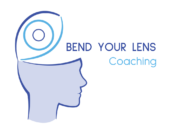Coaching
VS
Counseling
What is Coaching, exactly?
Professional Coaching is often conflated with therapy and consulting, but it's neither! Here is a definition to help distinguish between the three:
The International Coaching Federation (ICF), the leading global organization for coaches and coaching, defines coaching as partnering with clients in a thought-provoking and creative process that inspires them to maximize their personal and professional potential.
Coaching is a specific process of interaction, a partnership that encourages a shift in who a coachee is, what a coachee does, and how a coachee does it. This respectful, inquiring form of conversation and listening expands the coachee's ability to make significant changes, move forward in new areas, and have more of what they want in their life. Coaching is a person-centered, goal-oriented, non-directive (unlike consulting) supportive service.
Similarly to "The Dude," I abide . . . by the ICF code of ethics that is. Additionally, as an ICF credentialed coach, I believe the practice of true coaching can be defined with one word: transformative.

Coaching sounds perfect for me!
So, how does coaching differ from counseling?
Think of counseling (or therapy) and coaching on a continuum, where the center point, zero (0), is normal functioning; negative (-) numbers to the left of zero (0) are dysfunction; and positive (+) numbers to the right of zero (0) are thriving. Counseling focuses on bringing clients experiencing dysfunction (-) back to normal functioning (0). Coaching focuses on taking clients who are at normal functioning (0) into the realm of thriving (+).

Counseling
- Therapists most often take a directive approach and are seen as the expert in diagnosing and treating whatever dysfunction is present;
- Therapy may require diagnostic testing and treatment;
- Therapy is past-, present-, and future-focused;
- Therapy deals with deep-seated emotions and is psychological in nature;
- Therapy may be problem- or solution-focused; it can be strength-based
Coaching
- Coaches take a non-directive approach and believe that the client is best equipped to generate solutions and goals that are most relevant and meaningful to their lives;
- Coaches do not diagnose or treat;
- Coaching is present- and future-focused;
- Coaches help clients begin to thrive through a strength-based approach
Counselors (Therapists) and coaches often work together to ensure clients who need intervention to begin functioning normally gain access to the necessary resources and support and are then bolstered into a place of thriving through coaching. Common issues that warrant a referral to therapy include anxiety, depression, eating disorders, post-traumatic stress, substance abuse, suicidal ideation, and thought disorders. For more information regarding proper referrals and resources, click here.
